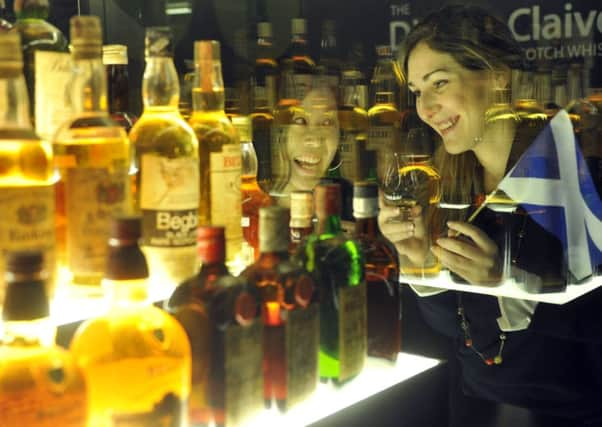Deaf visitors to Scots tourist venues being failed


Mystery visitors from Action on Hearing Loss Scotland found only three out of 21 venues - Stirling Castle, McManus Museum in Dundee and St Mungo’s Museum of Religious Life and Art in Glasgow - had working hearing loops at their main ticket or information point.
The charity says working loops are essential to amplify speech over background noise for people who wear hearing aids.
Advertisement
Hide AdVenues were also assessed and scored by the mystery visitors on whether staff demonstrated that they were deaf aware, and the overall accessibility of the attraction for people with hearing loss.
Although The National Museum of Scotland and Holyrood Palace did not have working loops, the mystery visitors considered the two Edinburgh venues and Stirling Castle to have the most accessible overall experience.
Melrose Abbey in the Scottish Borders, the Scotch Whisky Experience and Our Dynamic Earth, both in Edinburgh, The Falkirk Wheel and the Robert Burns Museum in South Ayrshire were considered to be the least accessible.
Robin Wickes, who wears hearing aids and lives in Edinburgh, says: “A working loop at the ticket or information desk has a huge impact on whether I decide to continue with my visits to tourist attractions.
“It’s very frustrating when staff aren’t deaf aware and there are no loops or they aren’t working, because I can often miss vital information if there is a lot of background noise. All tourist attractions should show that they value my custom by making sure reasonable adjustments are made for my hearing loss.”
Director of Action on Hearing Loss Scotland Delia Henry said: “As Scotland prepares for major high profile events in 2014, it is crucial that tourist attractions are fully accessible for the one in six people in Scotland who have hearing loss as well as those coming from overseas.
Advertisement
Hide Ad“People who are deaf or hard of hearing have the legal right to enjoy the same level of service as other customers so it is absolutely essential that tourist attractions ensure that equipment such as loops at main information points are installed, maintained and switched on and that staff are trained in deaf awareness.”
The other attractions visited were Camera Obscura in Edinburgh, Discovery Point Dundee, Edinburgh Castle, Glasgow Cathedral, Glasgow Science Centre, Paisley Abbey, Royal Yacht Britannia in Edinburgh, Scone Palace in Perthshire, and House for an Art Lover, the Transport Museum and Kelvingrove Art Gallery in Glasgow.
Advertisement
Hide AdResponding to the findings, Julie Trevisan Hunter, head of marketing at the Scotch Whisky Experience, said: “The Scotch Whisky Experience takes communication with our visitors very seriously and is one of Scotland’s best at welcoming tourists with diverse needs.
“We have induction loops on the barrel ride, audio guides suitable for hard of hearing and written scripts. Our team is trained to deal with visitors with communication difficulties as well as language barriers. We recently worked with VisitScotland to create a film for DisabledGo using the Scotch Whisky Experience as an example of excellence in dealing with visitors who are disabled, impaired or have special needs.
“I feel disappointed that we have been criticised without discussing this with us - if there was an individual training issue or if there is additional equipment we can install, we would always be happy to consider it. As we are refurbishing the welcome desk in January 2014, we will be updating all communications equipment at that time.”
A spokeswoman for the National Trust for Scotland, which runs the Robert Burns Museum, said: “We have worked hard to try to make the museum accessible to all. We would be happy to meet with Action on Hearing Loss to talk about ways to improve.”